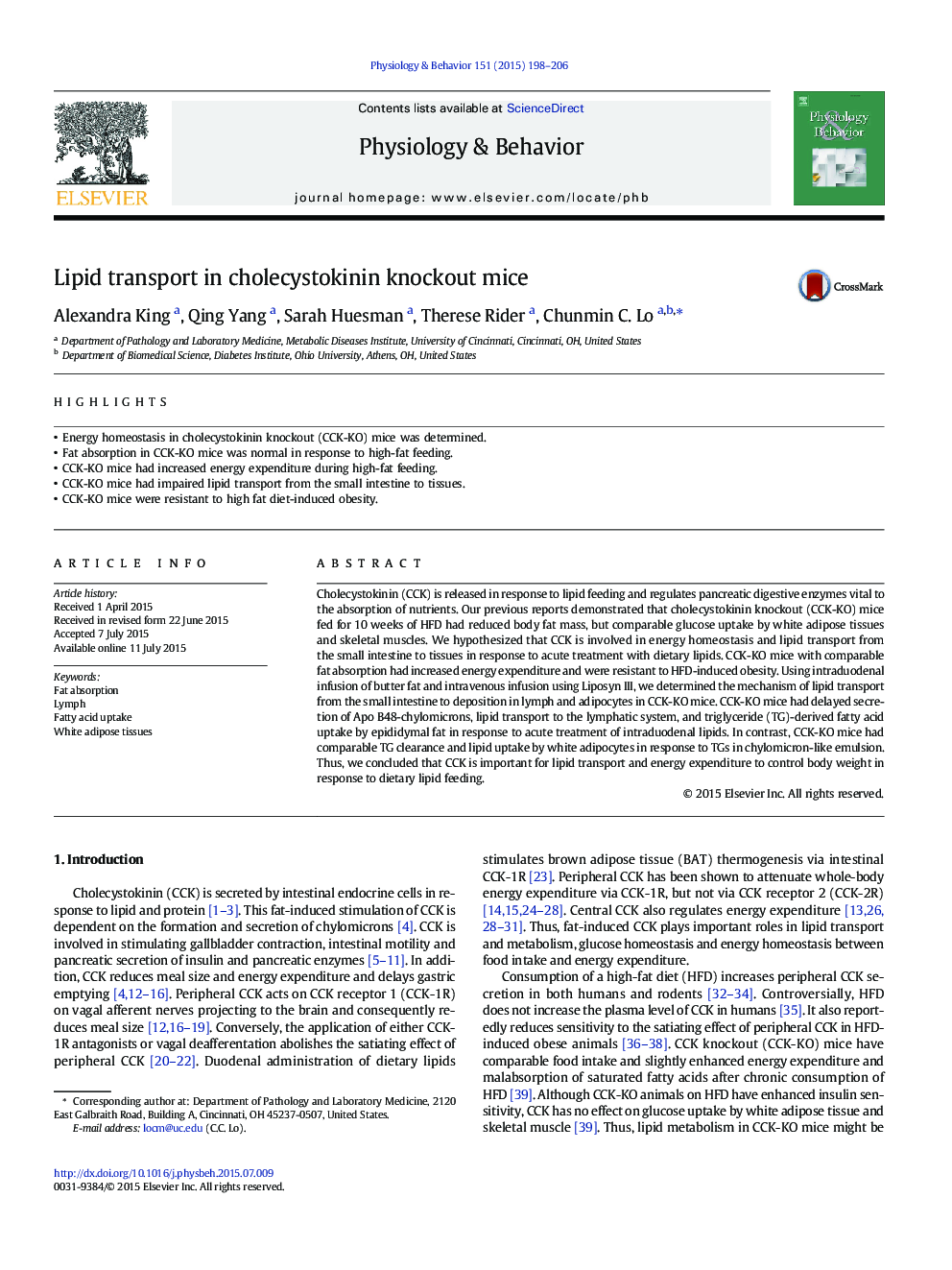| Article ID | Journal | Published Year | Pages | File Type |
|---|---|---|---|---|
| 5923257 | Physiology & Behavior | 2015 | 9 Pages |
â¢Energy homeostasis in cholecystokinin knockout (CCK-KO) mice was determined.â¢Fat absorption in CCK-KO mice was normal in response to high-fat feeding.â¢CCK-KO mice had increased energy expenditure during high-fat feeding.â¢CCK-KO mice had impaired lipid transport from the small intestine to tissues.â¢CCK-KO mice were resistant to high fat diet-induced obesity.
Cholecystokinin (CCK) is released in response to lipid feeding and regulates pancreatic digestive enzymes vital to the absorption of nutrients. Our previous reports demonstrated that cholecystokinin knockout (CCK-KO) mice fed for 10Â weeks of HFD had reduced body fat mass, but comparable glucose uptake by white adipose tissues and skeletal muscles. We hypothesized that CCK is involved in energy homeostasis and lipid transport from the small intestine to tissues in response to acute treatment with dietary lipids. CCK-KO mice with comparable fat absorption had increased energy expenditure and were resistant to HFD-induced obesity. Using intraduodenal infusion of butter fat and intravenous infusion using Liposyn III, we determined the mechanism of lipid transport from the small intestine to deposition in lymph and adipocytes in CCK-KO mice. CCK-KO mice had delayed secretion of Apo B48-chylomicrons, lipid transport to the lymphatic system, and triglyceride (TG)-derived fatty acid uptake by epididymal fat in response to acute treatment of intraduodenal lipids. In contrast, CCK-KO mice had comparable TG clearance and lipid uptake by white adipocytes in response to TGs in chylomicron-like emulsion. Thus, we concluded that CCK is important for lipid transport and energy expenditure to control body weight in response to dietary lipid feeding.
